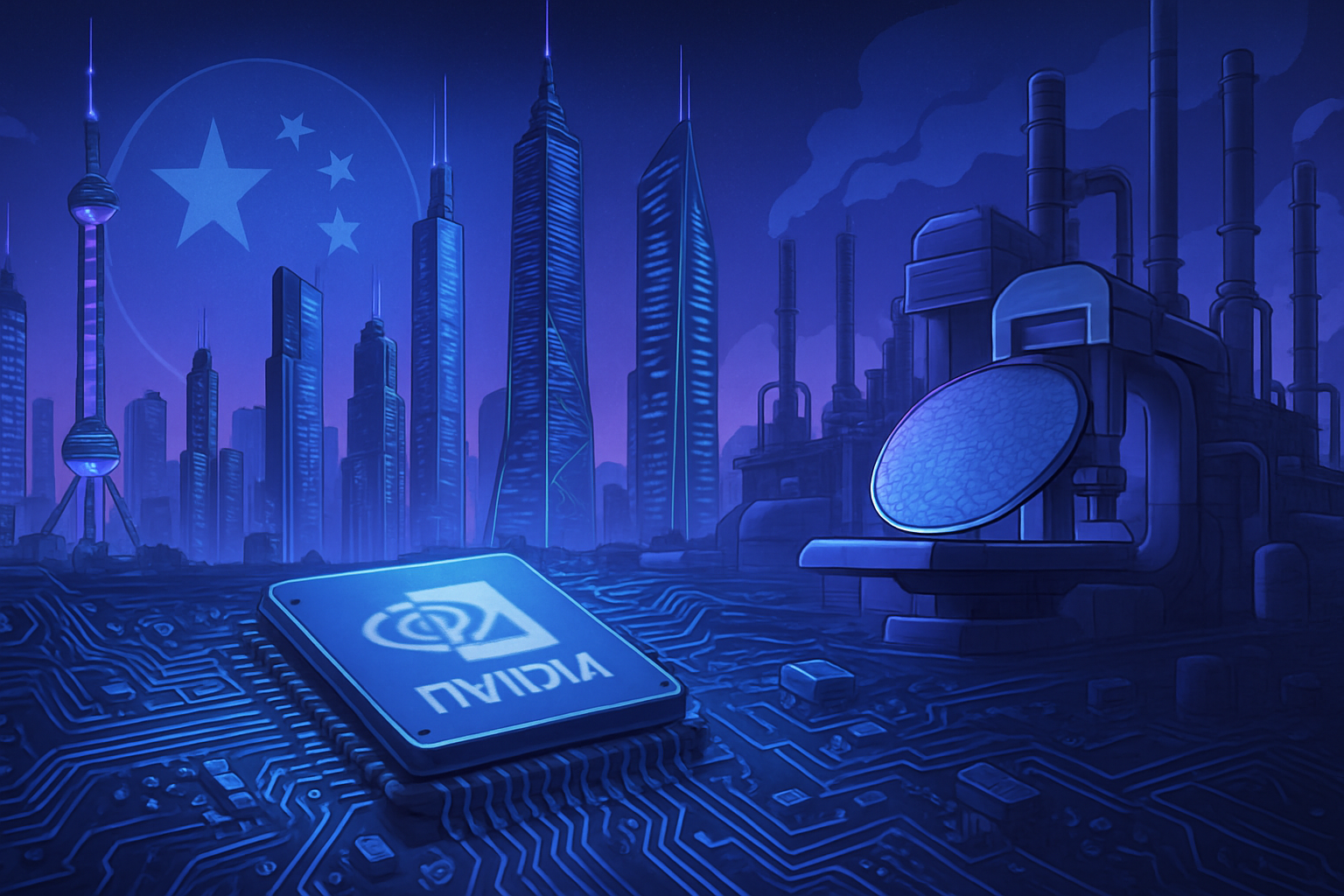The influence of Nvidia in China today transcends mere commercial stakes, impacting global geopolitical relations. The open Chinese market proves to be a testing ground where innovation reigns, but subtle challenges emerge. The power chip issue in Japan represents a major hindrance to this dynamic.
The constraints imposed by governments foreshadow upcoming turbulence in supply. Nvidia’s technological advancements must navigate a complex ecosystem shaped by international competitiveness.
This delicate balance between ambition and restriction shapes an uncertain future, tinged with unforeseen opportunities and monumental risks.
The Future of Nvidia in China
Nvidia is at the heart of strategic discussions regarding the sale of its advanced chips in China. Western tech companies are seeking to exploit the Chinese market while navigating an environment of strict regulations. Discussions around the sale of Nvidia shares reveal its ambition to achieve unprecedented valuation. The company aims to maximize its reach in this colossal market.
Geopolitical tensions require Nvidia to exercise increased caution in its actions. Export restrictions and concerns regarding technology transfer remain significant obstacles. Experts fear that vital technological resources may be compromised by stringent regulations. Recently, the former U.S. administration expressed concerns about the possibility of selling chips in China, reinforcing doubts about the future of Nvidia’s business.
The Challenges in Japan
Alongside Chinese issues, Nvidia faces significant challenges in Japan. The country’s artificial intelligence (AI) ambitions necessitate access to power chips. The situation is all the more delicate as Japan aspires to become a global leader in this field. Nvidia, as a supplier, plays a key role in this dynamic.
Resumption of Chip Sales
Recently, the company has resumed the sale of its advanced chips in Japan. This initiative aims to meet the growing demand from the Japanese market for cutting-edge technology. A recent summit highlighted Nvidia’s prominent role in national AI ambitions. The Japanese government, aware of these challenges, collaborates with tech giants to promote the development of AI-based solutions.
Development Strategies
Experts indicate that evidence-based strategies are essential for developing responsible policies. Nvidia’s initiatives must be framed within a context of transparency and security. This is imperative given global concerns regarding technology use. The development of common standards could facilitate closer cooperation between countries.
The implications of these changes on the chip market could be considerable. Many Japanese companies may be forced to rely on non-local suppliers, which would impact their competitiveness. The balance between trade relations and national security concerns remains delicate.
In this dynamic context, Nvidia must constantly adapt its strategies. The interplay of regulatory considerations, technical challenges, and market aspirations creates a complex landscape to juggle. The company’s future will depend on its ability to navigate these issues and capitalize on emerging opportunities. Today’s tactical choices will shape Nvidia’s business trajectory in Asian markets in the years to come.
Frequently Asked Questions
What is the impact of U.S. sanctions on Nvidia in China?
U.S. sanctions limit the export of advanced technologies to China, which could hinder Nvidia’s activities in this market, thus affecting its sales and strategic development.
How is China responding to the challenges of power chip supply?
China is investing heavily in its semiconductor industry to reduce its dependence on foreign manufacturers, including Nvidia, by supporting its local companies and establishing strategic partnerships.
What is Japan’s role in the power chip supply chain?
Japan is a key supplier of materials and technologies for chip manufacturing. Geopolitical tensions and supply issues can significantly impact power chip production worldwide, including for Nvidia.
Will Nvidia diversify its production to mitigate risks?
Nvidia is exploring options to diversify its supply and production by relocating some of its operations to countries less exposed to geopolitical tensions while maintaining relationships with strategic partners in China.
How are small tech companies in China responding to the challenges posed by Nvidia?
Small tech companies in China are trying to adapt by developing their own substitute technologies and seeking investments to strengthen their independence from large companies like Nvidia.
What are the long-term forecasts for Nvidia in China?
Forecasts for Nvidia in China remain uncertain, depending on the evolution of trade relations between the U.S. and China as well as the company’s strategic developments to adapt to market restrictions.
What is the impact of geopolitical tensions on power chip innovation?
Geopolitical tensions may hinder innovation by limiting international collaborations and access to necessary technologies, which could slow the development of new solutions in the power chip sector.






